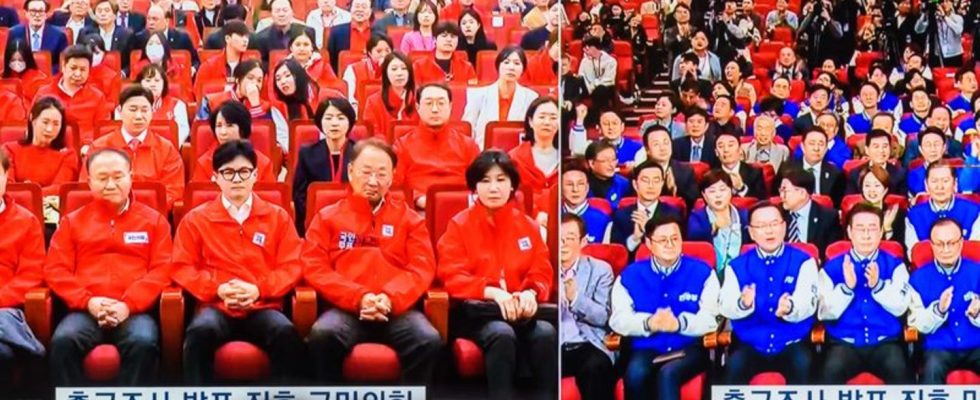houses of Parliament
South Korea’s opposition wins absolute majority in election
More than 44.25 million citizens were called to vote in South Korea. photo
© Kim Jae-Hwan/Zuma Press/dpa
South Korea’s conservatives have lost a parliamentary election for the third time in a row. The center-left opposition is now even expanding its majority.
The Conservatives suffered a major defeat for the third time in a row in parliamentary elections in Asia’s fourth-largest economy. Yoon promised to reform government affairs.
As South Korean broadcasters reported, citing the State Election Commission, the Minjoo, together with its smaller sister party, the Democratic Alliance of Korea, will in future represent more than half of all MPs with 175 seats and thus have an absolute majority.
Party leader announces resignation
In the election, the ruling People Power Party (PPP) and its satellite party won 108 seats. PPP leader Han Dong Hoon announced his resignation in response to the election results, according to national news agency Yonhap. Han said in Seoul that he wanted to apologize to the citizens on behalf of his party.
Yoon’s party has clearly missed its goal of preventing the center-left from further strengthening and changing the current balance of power in parliament in its favor. “I will humbly accept the will of the citizens expressed through the election,” Yoon was quoted as saying by a spokesman. He also wants to reform the government and do his best to stabilize the economy and improve people’s living conditions.
Important interim test for the government
Due to the opposition’s success in the election, the president is now in danger of becoming largely unable to act on domestic policy during his remaining three years in office. The election was seen as an important interim test for his government. The next presidential election is scheduled for 2027.
Yoon, who narrowly won the election two years ago ahead of DP Chairman Lee, can then no longer be re-elected. According to the country’s presidential constitution, Yoon can continue to govern even with a majority of the opposition in parliament. However, in this case, the government’s important legislative proposals can be blocked by the opposition.
More than 44.25 million citizens were called to vote. According to preliminary information from the State Election Commission, turnout was 67 percent. This was the highest number in a parliamentary election in 32 years.

